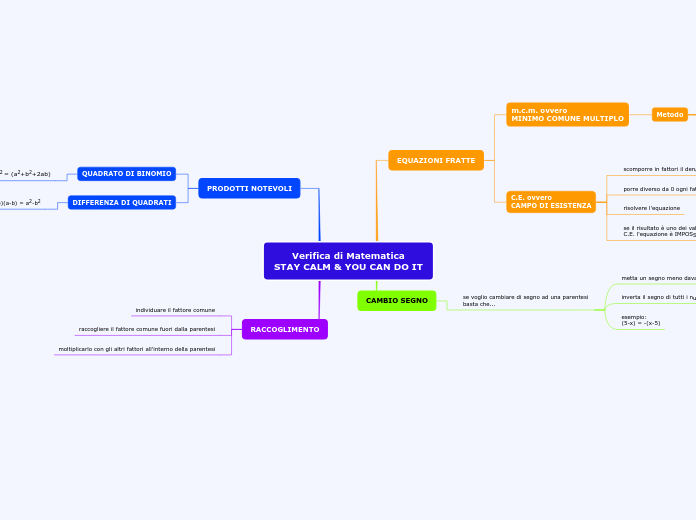av viola guarducci 4 år siden
439
Verifica di Matematica STAY CALM & YOU CAN DO IT

av viola guarducci 4 år siden
439

Mer som dette
A predicative clause may be introduced by conjunctions - that, whether, whether... or, as, as if, as though, because, lest, the way - or connectives.
The latter may be conjunctive pronouns - who, whoever, what, whatever, which - or conjunctive adverbs - where, wherever, when, whenever, how, why.
The object clause is a phrase on which a verb performs an action. It falls at the end of a sentence, and is governed by a verb or a preposition.
A compound sentence is a sentence that has at least two independent clauses joined by a comma, semicolon or conjunction. An independent clause is a clause that has a subject and verb and forms a complete thought.
Create your own compound sentences, using the coordinators above.
When independent clauses are joined with coordinators (also called coordinating conjunctions), commas and semicolons, they do more than just join the clauses. They add meaning and flow to your writing.
moltiplicare il numeratore per i fattori dell'm.c.m. che non facevano parte del denominatore
abbiamo trovato l' m.c.m., scriverlo al denominatore
moltiplicare tutti i fattori (comuni e non comuni) presi all'esponente più grande
scomporre in fattori il denominatore